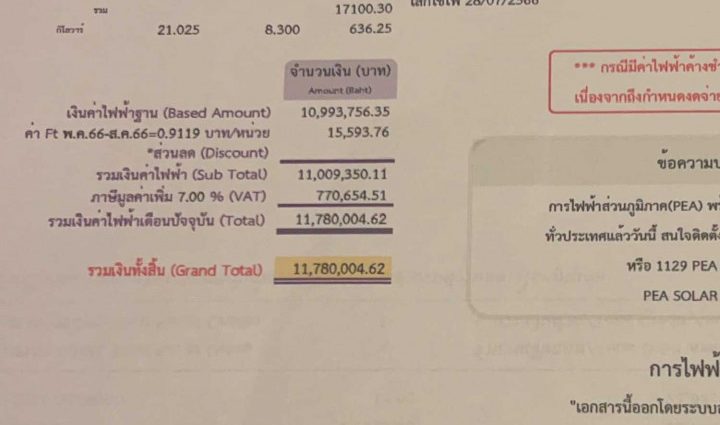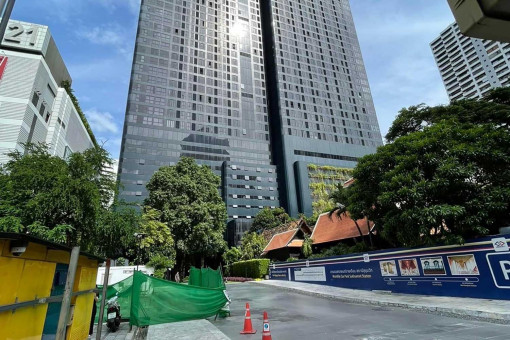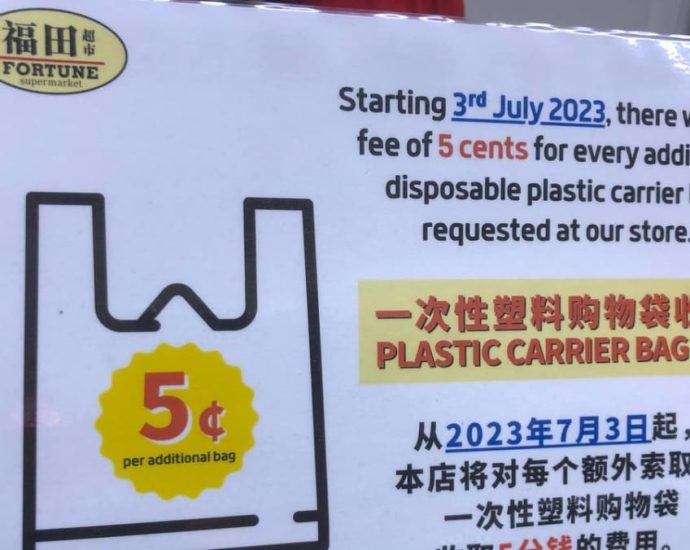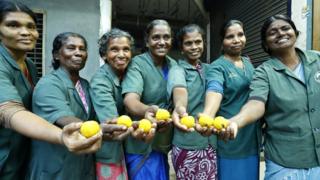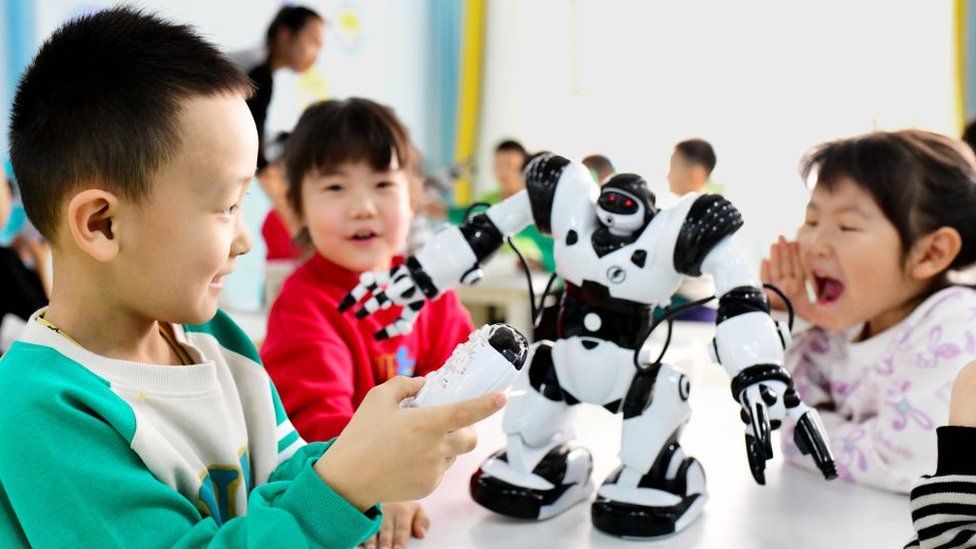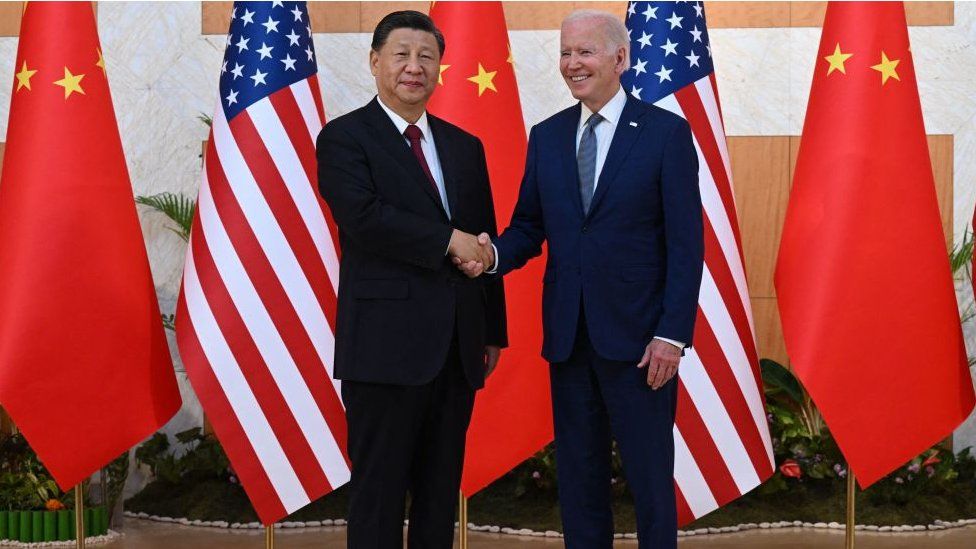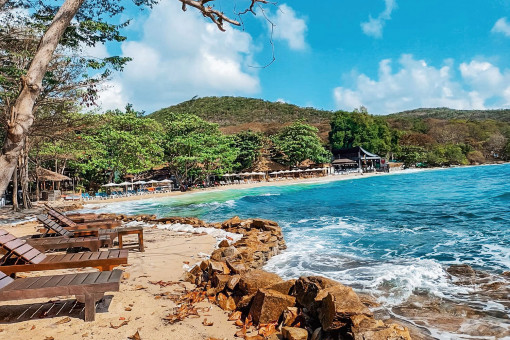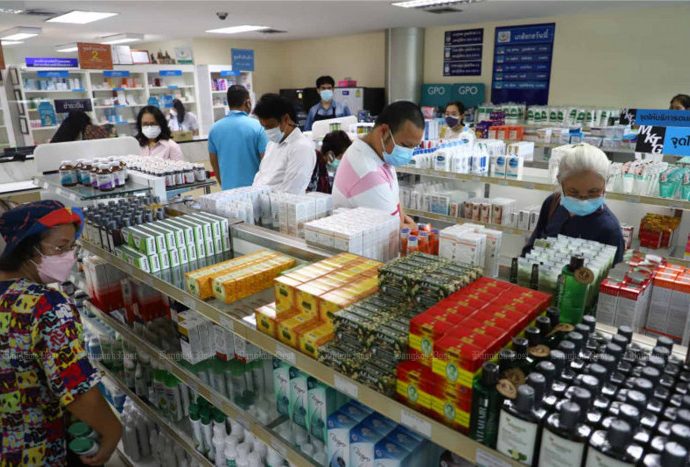B11m bill gives hotel owner jolt
PUBLISHED : 1 Aug 2023 at 06:09

The Provincial Electricity Authority (PEA) on Monday apologised to a small hotel owner in Surat Thani’s Koh Samui district for miscalculating her usage and sending her a bill for more than 11 million baht last month.
Thanaphan Tiasuwan, director-general of PEA’s Communication Affairs Division, said the agency discussed the error in the bill calculation with Apassanant Pattharapisithorn after the story went viral on social media.
Ms Apassanant originally posted a picture of the bill for July for the eight-room hotel on a dedicated Thai consumer protection website.
In the image, she is seen showing her horror at the news the hotel had consumed a shocking 5,099,939.87 units of electricity and racked up a bill of 11,780,004.62 baht.
Ms Apassanant said that her hotel normally only pays between 30,000–50,000 baht for its electricity so she immediately rang the Koh Samui PEA call centre but was diverted to an answerphone message asking her to call back on Thursday following the holiday weekend.
Anxious, she took to Facebook to air her grievance.
“[Koh Samui PEA’s] call centre said that I have to wait until Aug 3 to hear back from them. I’m really concerned,” she posted.
Eventually, the PEA apologised and explained that it was an employee keying a digit into the wrong row, which had jacked up the total charge.
The Koh Samui PEA has also assured Ms Apassanant that her amended July bill will be for 46,878.20 baht.
BMA lists Ashton Asoke possibilities
1 of 3 legal options could decide fate
PUBLISHED : 1 Aug 2023 at 05:52

Any resolution to Ashton Asoke condominium’s legal tussle rests with three applicable sections of a related law, according to the Bangkok Metropolitan Administration (BMA).
Deputy Bangkok governor Wisanu Subsompon outlined Sections 40, 41 and 42 of the Buildings Control Act 1979, which apply to the Ashton condo saga.
One of the sections may hold the key to saving the condo from being demolished following last Thursday’s ruling by the Supreme Administrative Court retroactively invalidating Ashton Asoke’s construction permit granted to the already finished 6-billion-baht condo project in Watthana district.
Section 40 authorises relevant officials to suspend the use of or bar unauthorised personnel’s access to a building which has been constructed, modified, demolished or relocated in violation of the act.
Section 41, however, allows for an owner of a building ruled to have defied Section 40 to rectify the situation by taking steps to obtain a needed permit within a specified, extendable deadline. Mr Wisanu said on Saturday that the owner of the luxury Ashton Asoke project may resubmit a request for a construction permit with the BMA, provided it has a clear plan to address the entrance problem.
He said the BMA will allow the project owner time to resubmit their request on the condition that it must have at least one entrance of at least 12 metres wide connected to a public road of 18 metres in width, as per the ruling.
Ashton Asoke’s main entrance joins with Asoke Road. However, part of the entrance space belongs to the Mass Rapid Transit Authority of Thailand (MRTA), which expropriated the land to build an underground train station entrance right on the project’s doorstep.
The MRTA space cannot be counted as Ashton Asoke’s land, which means the requirement for at least one 12m-wide entrance cannot be met.
Mr Wisanu said on Monday that Ashton Asoke’s legal wrangle also involves Section 42 of the Buildings Control Act.
The section stipulates that related authorities may order a dismantling of the building in whole or in part if no action is taken or the building owner refuses to rectify the problem.
The BMA’s Department of Public Works has written to the Watthana district office instructing it to order the Ashton Asoke project owner to address the building issue under the act.
On Monday, Mr Wisanu indicated that if rectification under Section 41 failed, the BMA would be left with the option of enforcing Section 42, which would likely seal the fate of the project.
Narit, TAT to jointly promote stargazing locations
PUBLISHED : 1 Aug 2023 at 05:24

The National Astronomical Research Institute of Thailand (Narit) has joined hands with the Tourism Authority of Thailand (TAT) to promote “astronomical tourism”, with 18 stargazing locations designated as dark sky reserves this year.
Narit director Saran Poshyachinda said the institute and TAT launched the Amazing Dark Sky in Thailand Season 2 project to introduce 18 stargazing locations nationwide that have been registered as dark sky reserves where artificial light can’t reach.
The TAT and Narit initiated the Amazing Dark Sky in Thailand project in 2020 to promote dark sky tourism, raise awareness of light pollution, and the preservation of quiet and dark skies, which are perfect photography spots for stargazers, he said.
Narit had held astronomical activities more than 150 times, attended by at least 100,000 stargazers over the past three years.
This year, 26 locations across the country were proposed for endorsement as dark sky reserves, but only 18 met the criteria, Mr Saran said.
They consist of five national parks and 13 properties.
The parks are Mae Wong National Park in Kamphaeng Phet, Ta Phraya National Park in Sa Kaeo, Khao Yai National Park in Nakhon Ratchasima, Si Nan National Park in Nan and Namtok Pha Luang Forest Park in Ubon Ratchathani.
The 13 properties include Khon Kaen Zoo, Mela Garden Retreat Cottage Resort in Saraburi, Khirimala Eco Camp in Ratchaburi, Saengsuk Farm in Rayong, Rai Khao Noi Sawana in Nakhon Ratchasima and Ao Toh Li Viewpoint in Phangnga.
There are also seven properties in Chiang Mai, which are Ton Khao Hom Ban Aom Doi (Chill Chiang Dao), Villa De View Chiang Dao, Chiang Dao Farm Stay, Ban Suan Pa Pong Doi, the Teak Resort, Putoh Chiang Dao and the Summit Green Valley Chiangmai Country Club.
Commentary: Thailandâs emerging new political alignment
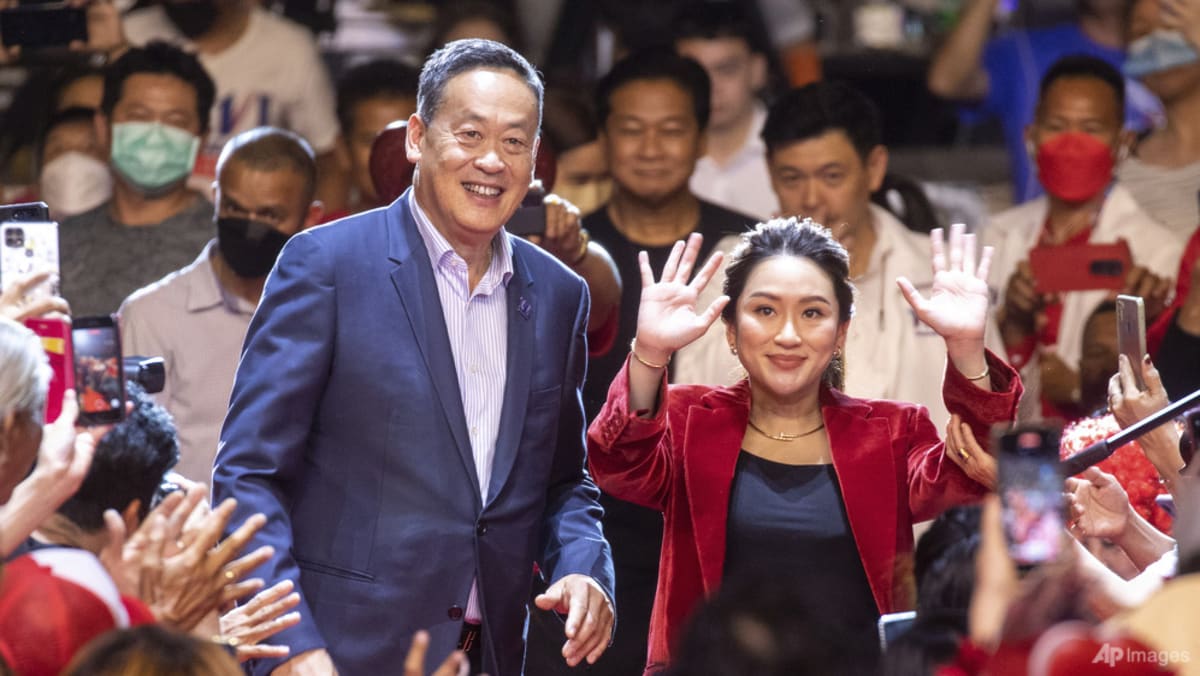
Instead, it is Pheu Thai, which ran a respectable second place in the May election with 141 seats, which now appears to be taking the lead in forming an alternative, conservative coalition.
Even before the election, there were rumours that the conservative parties had been negotiating with Pheu Thai with the prospect of forming a coalition. One report circulating in Thai social media even claimed that Thaksin had met with a close aide to King Vajiralongkorn, former army commander, General Apirat Kongsompong, on the Malaysian island of Langkawi in April.
In its election campaign, Pheu Thai was careful not to antagonise the monarchy, by refusing to support calls to reform the draconian lese majeste law, which forbids criticism of the monarchy.
In recent days the Pheu Thai leadership has publicly met with representatives of the conservative parties. These include the military-backed Palang Pracharat party, led by the politically influential general Prawit Wongsuwan. The two parties have more in common than one might think.
In government, Palang Pracharat contained many politicians from Thaksin’s own former Thai Rak Thai party. Prior to the 2023 election, some Palang Pracharat politicians rejoined Pheu Thai, Thai Rak Thai’s successor party.
The other prospective partner is Bhumjaithai, another conservative populist party, which came third with 70 seats. Bhumjaithai is also part of Thaksin’s political network, having broken away from another earlier Thaksin party, Phalang Prachachon, in 2008.
THAKSIN AND PHEU THAI REMAIN A POWERFUL FORCE IN THAI POLITICS
Add some of the smaller parties and a Pheu Thai-led conservative coalition would have a majority of seats in the House of Representatives. This would be acceptable to the military-appointed Senate – and be able to form the government.
Commentary: Isn’t it ironic Matty Healy’s kiss brought Malaysia together for a moment?

Others felt the pushback from conservative groups left Malaysia missing out on the potential “gold mine” that went to Singapore. Music fans had earlier lamented that Coldplay will play six shows in Singapore, compared to just one in Kuala Lumpur.
Food and retail vendors, including small-time entrepreneurs, were hurt by the festival cancellation, after investing money and time to boost revenue at the event. Local bands also lost an opportunity to perform on the big stage.
FODDER FOR STATE ELECTIONS
Ironically, Matty Healy achieved something few have been able to do in Malaysia, even if only momentarily: He brought the country together, across the political divide, in anger against his disrespectful and offensive behaviour.
So much so, that those on the conservative bench had to create a point of contention and chose to falsely accuse Mr Fahmi of blaming PAS for the cancellation of the Good Vibes Festival. The communications minister had long taken responsibility for the decision, and a police report has been filed against the false accusation.
This incident will undoubtedly be milked and manipulated in the build-up to the state elections, seen as a referendum not only on Mr Anwar’s performance but also on his multiracial vision for the country.
But entertainment news will likely be forgotten as voters’ attention turns back to more vital bread-and-butter issues. While large international events like the music festival boost the national economy, these don’t usually take place nor make an economic impact in the conservative states to begin with.
5, 10 cents for extra bags: Hawkers, minimarts start charging as more ask for free carriers
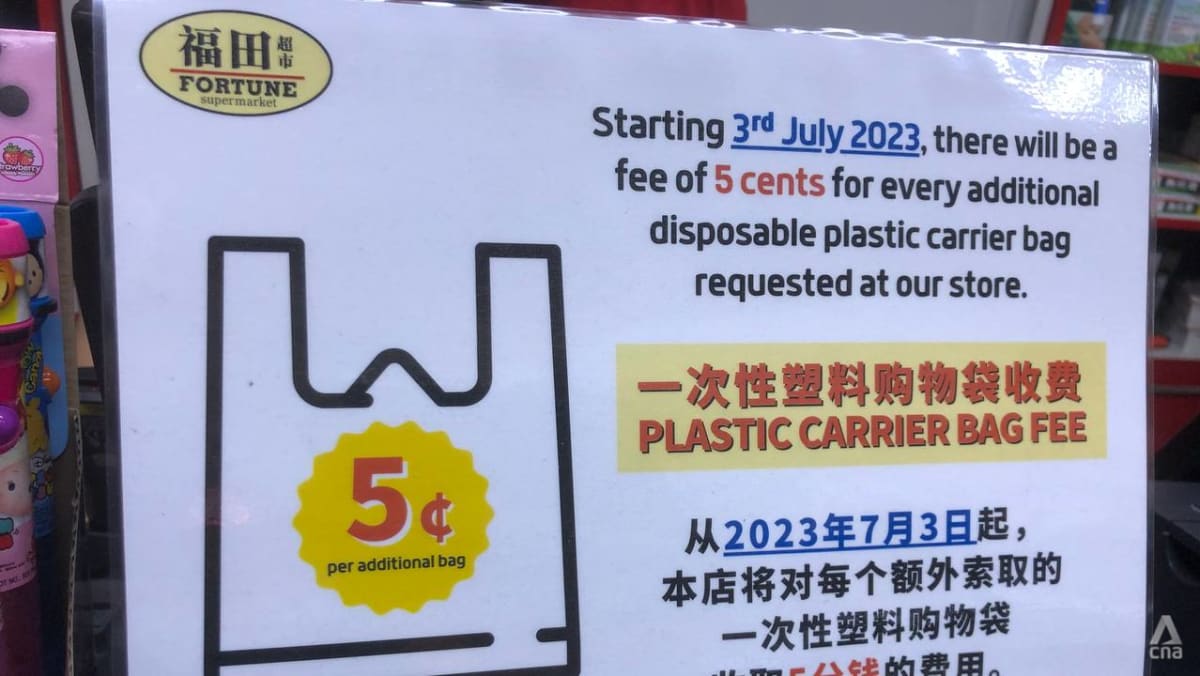
“IF YOU WANT MORE, THEN YOU BUY”
But other hawkers CNA spoke to said they do not charge more for extra bags, beyond the typical takeaway fee of up to 30 cents.
A hawker selling salted duck at Bukit Canberra Hawker Centre said she doesn’t frequently get customers asking for bags, just “on and off”. A Western food stall employee at the same hawker centre said they also do not charge customers who occasionally ask for no more than one extra bag.
But some hawkers have encountered customers taking multiple bags at a time – usually without asking.
A vegetarian cooked food stall at Chong Pang Market & Food Centre in Yishun once had to deal with an elderly customer grabbing several plastic bags hanging near the entrance of the store.
An employee at the stall, who gave her name as Sally, said the customer took about six plastic bags after buying a packet of beehoon.
“I know what he (did) … But I don’t want to open my mouth and (tell) him because he’s old,” said Ms Sally, adding that she “let him take” the plastic bags the first time.
But the customer returned a second time and took several plastic bags again. By the third time, Ms Sally moved the plastic bags out of reach the moment she spotted the customer.
“I told the uncle … you’re (not here) to buy my bee hoon. You just want to come to take my free plastic bags,” Ms Sally said.
Although the customer did return to the stall two more times, he eventually stopped coming. When CNA visited the store on Jul 25, the plastic bags had been placed back at their original location.
While the stall also has other customers taking additional one to two plastic bags – sometimes without asking as well – it still does not charge more for the carriers.
“(If) it’s one or two, I’ll give. But if you want (more), then you buy (the plastic bags) for me,” Ms Sally said with a laugh.
Kerala lottery: Women sanitation workers hit India lottery jackpot
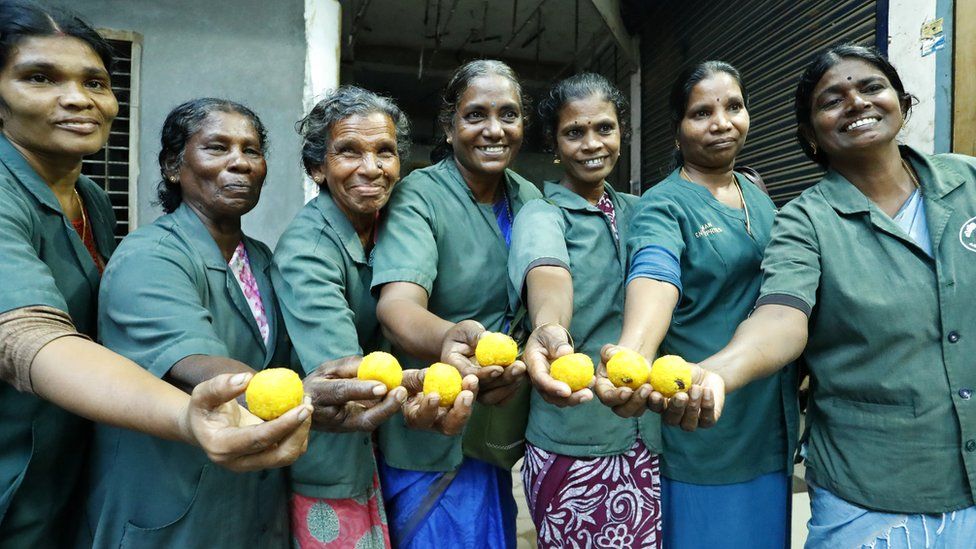 Arun Chandrabose
Arun ChandraboseIn June, 11 women sanitation workers from the southern Indian state of Kerala pooled money to buy a lottery ticket. Last week, they were overjoyed to find out they had hit the jackpot of 100m rupees ($1.2m; £946,685).
The women are part of a group that collects non-biodegradable waste from households in Parappanangadi town in Kerala’s Malappuram district. They usually get around 250 rupees a day – from monthly payments made by the households – and occasionally a share of the money made by the local corporation from selling the segregated waste they collect.
The money, they say candidly, is not enough to make ends meet. Most of the women have borrowed money and taken loans for their children’s education and other expenses.
That’s why they would occasionally join forces to buy a lottery ticket.
The lottery is largely illegal in many Indian states but Kerala’s government itself runs a highly popular programme – private lotteries are banned in the state.
“Once, we won a 1,000-rupee prize and shared it,” says MP Radha, who usually buys tickets for the group.
Last month, the group decided to buy a 250-rupee ticket for a monsoon bumper prize lottery (bumper prize lotteries are issued for special occasions such as festivals).
Kuttimalu, 72, says she was initially sad when Radha was collecting funds because she didn’t have enough money.
“Then Cherumannil Baby (another member of the group) told me she had 25 rupees and was willing to lend me half of it for the ticket,” she tells the BBC.
So the two women put in 12.5 rupees each for their share of the ticket while the other nine women paid 25 rupees each.
“We agreed we would get an equal share if we won anything,” Ms Kuttimalu says. “We didn’t expect to win such a huge amount of money!”
The women only found out they had won a day after the draw, when one of them asked her husband to check the results.
“This is the fourth time we bought a ticket for the bumper prize,” Ms Radha says.”We are fourth time lucky!”
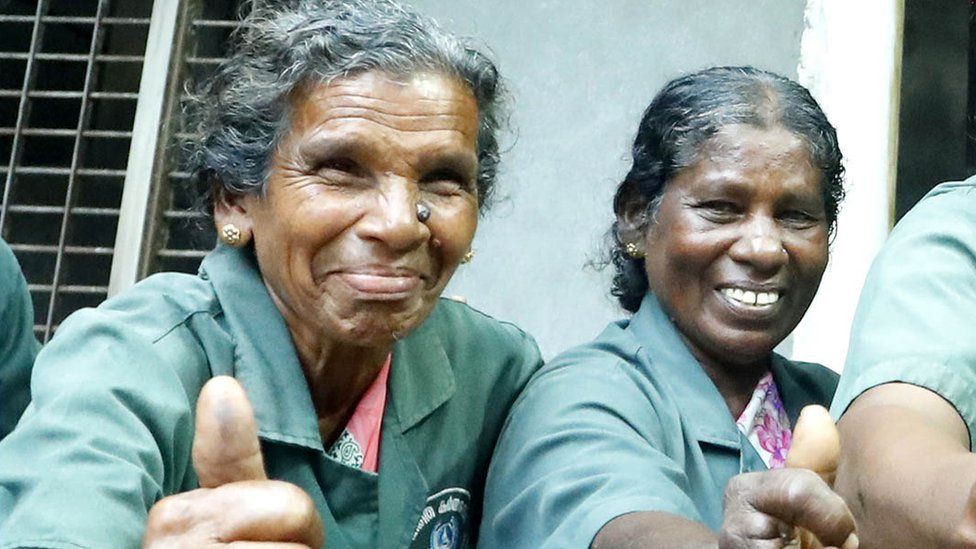
Ms Baby, 62, says she can’t believe the group has hit the jackpot.
“Luck was never on my side,” she says. Her house was washed away in the devastating floods that hit Kerala in 2018. She now plans to build a house and pay off her debts.
Other women in the group also have similar stories to share.
K Bindu, 50, lost her husband last year to kidney failure. The family was unable to afford the money for his transplant.
“He used to buy lottery tickets with the money we kept for dialysis,” she says. “He left us without finishing the construction of our house. I have to complete it now.”
Ms Bindu wants to spend the money on educating her 15-year-old daughter so she can get a good job.
Lakshmi, 49, says that just the night before their lottery win, her family had been worrying about their future. Her husband, a construction worker, was struggling to get work because of heavy rains in the state.
The couple is relieved that they can now spend the money on their daughter’s studies.
Leela, 56, had been worried about how she would pay for her daughter’s surgery. “I had already borrowed money for her wedding by taking a loan against my house,” she says.
After paying government taxes, the group will receive 63m rupees. Ms Baby and Ms Kuttimalu will divide their share of 6.3m rupees equally between them while the others will get 6.3m rupees each.
Apart from collecting waste, the women also help construct public toilets and install facilities for disposing waste, says KT Balabhaskaran, director of the Suchitwa Mission, the agency which coordinates these efforts across the state.
On Friday, a day after their life-changing win, the 11 women reached the agency’s office like always to resume their work.
“We decided one thing,” Ms Leela says. “We will not leave this job because it was this collective that brought us prosperity.”
BBC News India is now on YouTube. Click here to subscribe and watch our documentaries, explainers and features.

Read more India stories from the BBC:

Gallium and germanium: What Chinaâs new move in microchip war means for world
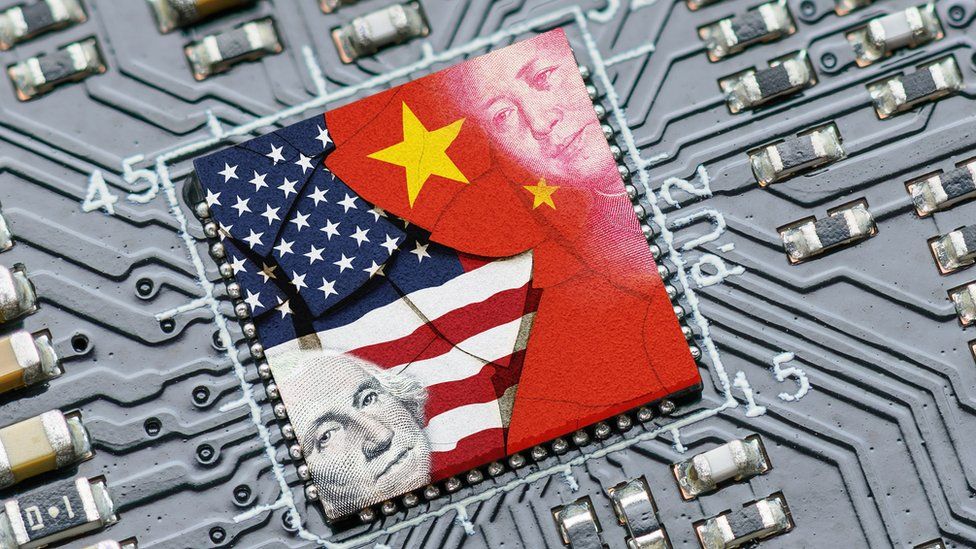 Getty Images
Getty ImagesChina is due to start restricting exports of two materials key to the semiconductor industry, as the chip war with the US heats up.
Under the new controls, special licences will be needed to export gallium and germanium from the world’s second largest economy.
The materials are used to produce chips and have military applications.
The curbs come after Washington made efforts to limit Beijing’s access to advanced microprocessor technology.
China is by far the biggest player in the global supply chain of gallium and germanium. It produces 80% of the world’s gallium and 60% of germanium, according to the Critical Raw Materials Alliance (CRMA) industry body.
The materials are “minor metals”, meaning that they are not usually found on their own in nature, and are often the by-product of other processes.
Besides the US, both Japan and the Netherlands – which is home to key chip equipment maker ASML – have imposed chip technology export restrictions on China.
“The timing of this announcement from China is not coincidental, given chip export restrictions announced by the Netherlands amongst others,” Colin Hamilton from the investment firm BMO Capital Markets told the BBC.
“Quite simply, if you won’t give us chips, we won’t give you the materials to make those chips,” he added.
The constant tit-for-tat between the world’s two biggest economies has raised concerns over the rise of so-called “resource nationalism” – when governments hoard critical materials to exert influence over other countries.
“We’re seeing governments increasingly move away from the narrative of globalisation,” says Dr Gavin Harper, a critical materials research fellow at the University of Birmingham.
“The idea that international markets will simply deliver materials is gone and, if you look at the picture more broadly, Western industry could be facing a bit of an existential threat.”
Gallium arsenide – a compound of gallium and arsenic – is used in high-speed computer chips, as well as in the production of light-emitting diodes (LEDs) and solar panels.
A limited number of companies around the world produce gallium arsenide at the purity needed for use in electronics, according to the CRMA.
Germanium is also used to manufacture microprocessors and solar cells. It is also used in vision goggles which are “key to the military,” Mr Hamilton said.
However, Mr Hamilton added: “There should be enough in regional supply from base metal smelters to provide alternatives. The importance to top quality semiconductors is a harder one to solve, as China really is dominant. There will probably be some push for recycling.”
Last month, a Pentagon spokesperson said the US had reserves of germanium but no stockpile of gallium.
The spokesperson added that “The [Defense] Department is proactively taking steps… to increase domestic mining and processing of critical materials for the microelectronics and space supply chain, including gallium and germanium”.
Still, the Chinese export restrictions are expected to have a limited impact in the long-term.
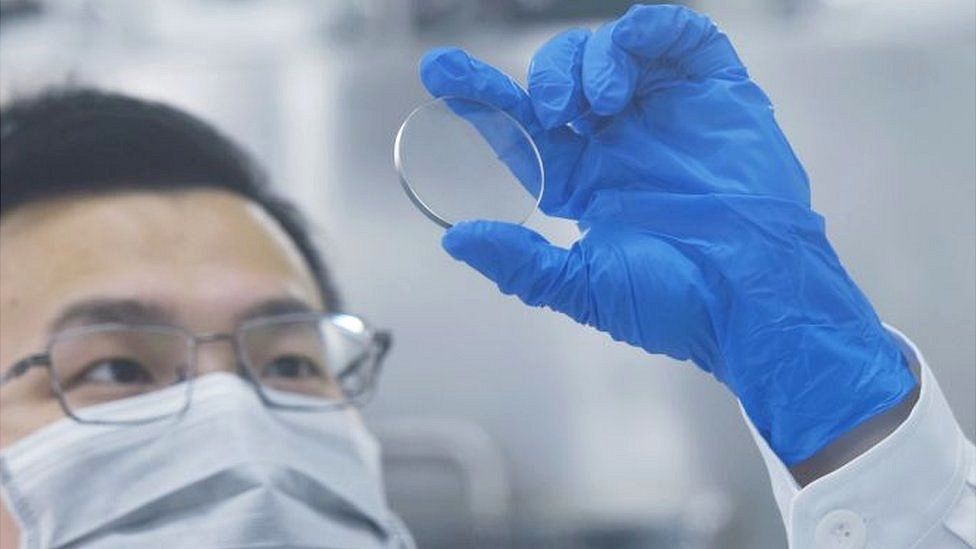
Although China is the leading exporter of gallium and germanium, there are substitutes for the materials in the production of components like computer chips, political risk consultancy Eurasia Group said.
There are also active mining and processing facilities located outside of China, it added.
The consultancy highlighted similarities to when China restricted the exports of rare earth minerals over a decade ago.
More exporters emerged and in less than a decade China’s dominance of the rare earths supply chain fell from 98% to 63%, according to Eurasia’s estimates.
“We can expect to see the development and exploitation of alternative sources of gallium and germanium, as well as intensified efforts to recycle these commodities and identify more readily available alternatives,” Anna Ashton, Eurasia’s director for China corporate affairs and US-China, told the BBC.
“That’s not simply going to be a result of China’s recently announced export restrictions,” she added. “It’s a result of expectations of growing demand, intensifying geostrategic competition and distrust, and China’s documented willingness to restrict imports and exports in service to political and strategic ends.”
In October, Washington announced that it would require licences for companies exporting chips to China using US tools or software, no matter where they are made in the world.
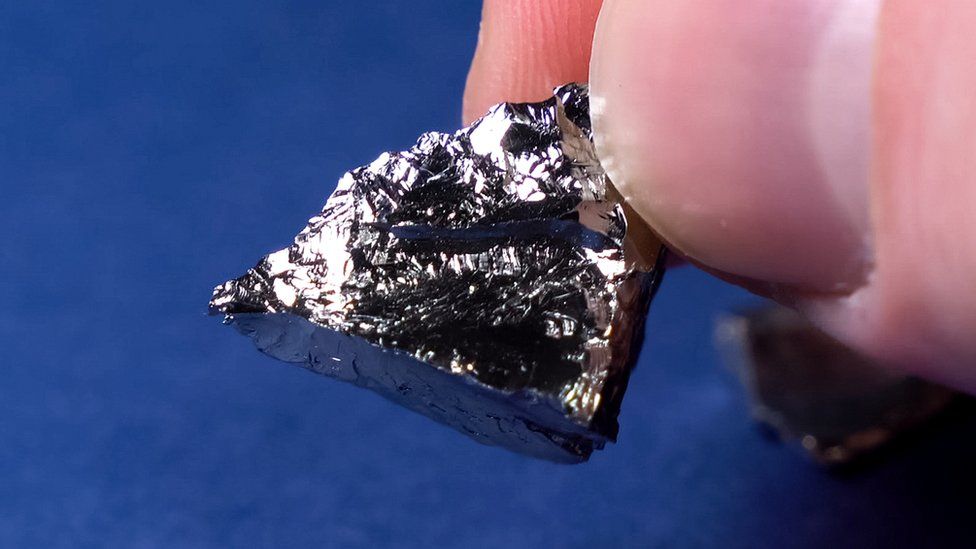
China has frequently accused the US of “tech hegemony” in response to export controls imposed by Washington.
In recent months, Beijing has also imposed restrictions on US firms linked to the American military such as aerospace company Lockheed Martin.
Meanwhile, Western governments have spoken about the need to “de-risk” from China, which means being less reliant on it for both raw materials and finished products.
However, diversifying supply chains and building up the capability to mine and then, crucially, process metals such as gallium and germanium will take years.
In the long-term, mineral-rich countries, such as Australia and Canada, see the materials crisis as an opportunity.
Experts warn that weaponising resources and technological capabilities – as the US and China have both done – will also have global consequences when it comes to the environment.
That is because important new green technologies are reliant on these kinds of materials
“This isn’t a national problem. This is a problem that we face as a human race. Hopefully, policymakers can bring their best selves to the table, secure access to those critical materials that are really essential for the energy transition and we can start to tackle some of the challenges around decarbonisation,” said Dr Harper.
While the impact of the latest export controls will not be catastrophic for industry or consumers, experts warn it is important to pay attention to where the trend is heading.
“The man and woman in the street cannot relate to gallium and germanium,” says Dr Harper. “But equally, they care about how much their car costs or how expensive it will be to switch to green technology.”
“Sometimes very abstract policies happening in faraway lands actually translate into something that has a big impact on their lives.”
Related Topics
New pier for Koh Samet ferry under construction
PUBLISHED : 1 Aug 2023 at 04:00
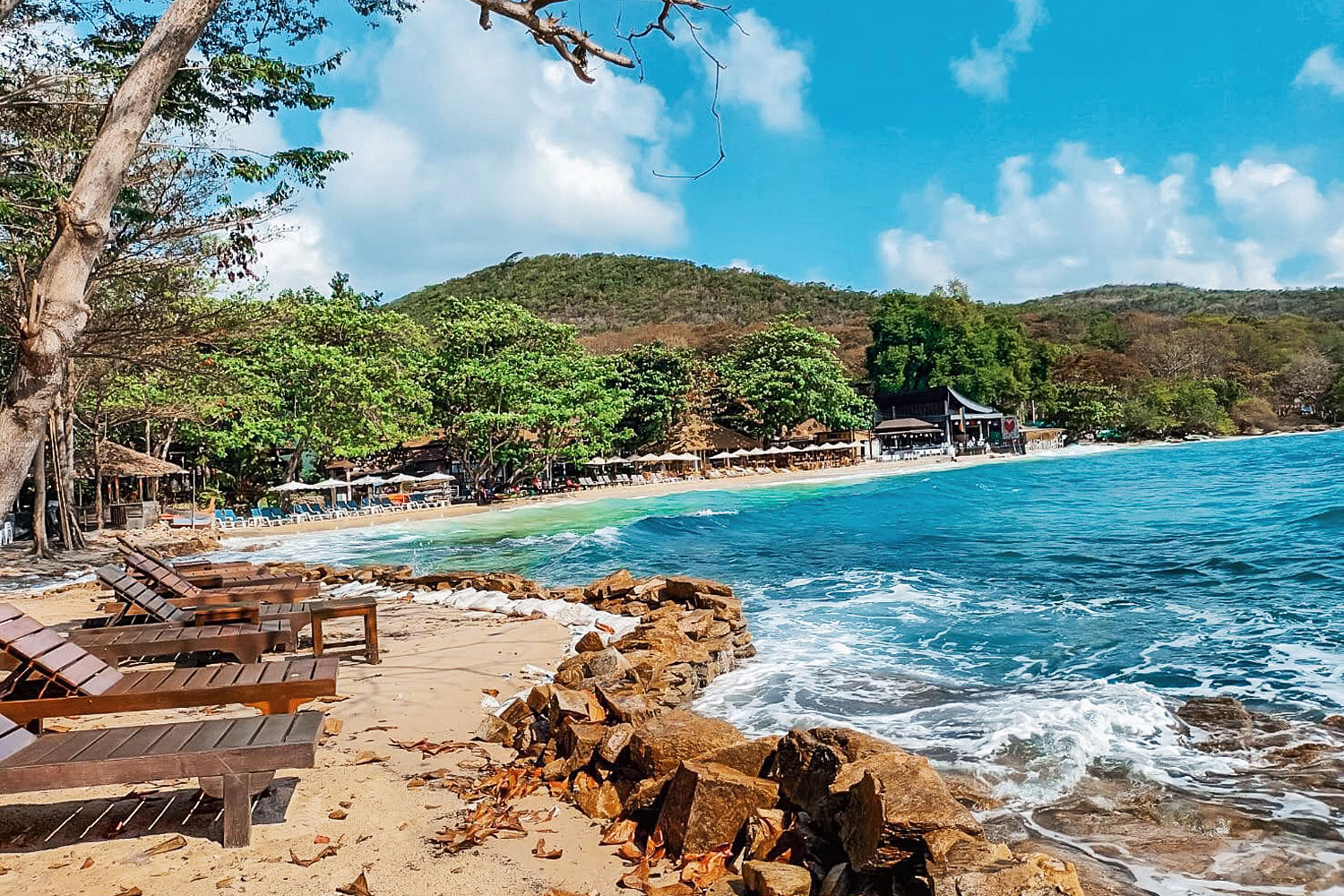
The Rayong Provincial Administrative Office (PAO) is spending 70 million baht building a new pier linking the mainland to the resort island of Koh Samet.
The pier is expected to be fully open in 2025.
Rayong PAO chief, Piya Pitutecha, said a new pier is needed as the current pier is in a run-down condition. Currently, the pier is rented by a private company that operates a ferry service to the island.
After receiving 76 million baht from the Budget Bureau, Rayong PAO immediately initiated the first phase of work by demolishing wooden structures on the pier.
During the second phase, restaurants and shops will be removed from the pier area. Construction of the pier using reinforced concrete will follow in the third phase. The pier will be the province’s first modern pier built according to industry standards.
Mr Piya said the pier would offer facilities for locals and tourists wanting to take ferries to Koh Samet. The pier will also host state agencies’ offices, including the Marine Department’s regional office, the Marine Police Division and Tourist Police.
“Work is proceeding with the second phase. Once it is completed, the pier will become Rayong’s next landmark to welcome people to and from Koh Samet,” he said.
Mr Piya and other Rayong officials recently visited the location of the new pier, along with tambon Ban Phae mayor Pairat Arunwessaset.
Pharmacies add treatments for ‘gold card’ subscribers

PUBLISHED : 1 Aug 2023 at 09:20
The National Health Security Office (NHSO) plans to recruit pharmacies nationwide to offer medicine listed for 16 minor ailments for subscribers of the universal healthcare (UHC), also known as the “gold card” scheme.
Dr Jadet Thammathat-aree, secretary-general of the NHSO, said the office and the Pharmacy Council of Thailand (PCT) launched the project last November with 1,090 pharmacies across the country.
As of July 14, 189,035 gold card holders had registered to use the service.
Dr Jadet said the most-requested medicines are for flu, joint pain or muscle pain, skin irritation such as rashes, stomach pain and eye irritation.
The NHSO is currently working with the PCT to recruit 17,000 more pharmacies to join.
In 2024, the NHSO expects over 5,000 pharmacies will be part of the scheme and have medicines for 16 minor ailments ready to distribute, Dr Jadet said.
He added that every district will have at least one pharmacy in the NHSO scheme to administer basic medicines for subscribers. Ultimately, the NHSO wants all pharmacies to join.
Pharmacies that do so will also be able to provide annual basic health screenings for gold-card holders free of charge, which covers BMI, blood pressure, diabetes, and risks from smoking, drinking and drug use.
Dr Jadet said preventive medicines such as birth control, birth control for lactating women, emergency birth control, condoms, pregnancy tests and pregnancy supplements will also be available.
Subscribers to the scheme can show their national ID card to receive services.

